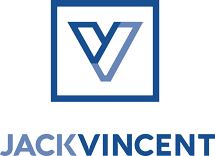I’ve received about a dozen CVs in October. All by email. All unsolicited.
I’m going to hurt the feelings of a few friends and readers here, but I need to be cruel to be kind. So here goes.
Don’t send me your CV. (Please.)
Don’t send anybody your CV on an unsolicited basis.
Daniel Pink wrote “Free Agent Nation” a decade ago. In it, there is wisdom for the ages.
While Pink advocated self-employment and entrepreneurialism, he admitted there are often viable reasons for going back in to the mother ship of gainful employment: a solid income stream, health insurance, training, relevant projects in an area where you want to grow, etc.
But that’s no reason to sell poorly.
And just sending out your CV is poor salesmanship. Here’s what it says to cynics like me:
- Do my job for me. Maybe you need me. Or maybe you’ll forward my CV to someone who does. Or maybe you’ll tell me to call someone who’s looking for someone with my qualifications right now. Or maybe not. But I’m taking the easy way by sending you my CV. So do my job (for me).
- I haven’t taken the time to determine your needs. We’ve never spoken, or the last time we spoke was you-remember-when. I really don’t know if you need someone with my qualifications, or if you know anybody who does. But I’m rolling the dice, which is a low-risk roll (for me) because I haven’t put any “skin in the game” so far, anyway.
- I hope my CV comes pretty close to your needs. Sure, we’ve all read about tailor-made solutions, but now that I’m in this space, that’s theory. This is reality (for me).
- If I had to post this at a real post office, I’d probably pick up the phone. Imagine if I had to print this, write a cover letter, insert it into an envelope, lick a stamp, walk it down to the post office. If I had to all that, I’d probably just pick up the phone and have an actual conversation with you. I could even listen to you. But emailing you is so fast, and so easy (for me). Click.
- I’ve given up on consulting/My start-up never really got started. If something changes, I’ll take that entrepreneurial opportunity, for sure. But it’s tougher than I thought out here, and I’m throwing in the towel. I wanted “out” of the corporate life when we last spoke, but now… whew, I’ll take anything. This is the way it’s going to have to be (for me).
- I’m giving up on my current employer. Your needs and how I can address them are fine, but they really come second. I’m just so-o-o ready to leave this place that I’m flogging my CV around town, because getting out of here comes first. So maybe you have a need and, sure, that would be really great (for me).
Think about it. Have you ever received an unsolicited CV in your inbox? No? How about an unsolicited brochure in the form of a pdf attachment? What went through your mind?
In the Brave New World, nobody wants to look at any brochure, learn about any product, or read any CV, until they’ve determined that they have an opportunity to exploit, a problem to solve, a need to address, or a desire to fulfill… and that you can help them exploit it, solve it, address it or fulfill it.
Then they will want to talk to you, and meet you (and, maybe read your CV before the meeting).
So what you need to do is to, yep, pick up the phone… and help people.
Sell yourself like a business development professional in an exciting industry, with great products that really help people.
Here are 11 steps. (“Eleven?” Yes, eleven. I didn’t say it would be easy. If easy is what you want, just send your CV!)
- Assume that your product is good. Believe it! The best career salespeople do not work for companies whose products they don’t believe in and whose management doesn’t inspire them. (Although we all make mistakes, but I digress.) So believe in yourself. Believe that you can help people/companies.
- Determine your value-add and your passion. Niche thyself with a unique selling point or competitive advantage statement. Be very specific. What makes you so damn good, and how does that help people/companies?
- Identify your targets. List those companies you’d like to work for first, and then those where you feel there could be a need for your USP/talents. Any correlations? Within those companies, which department/type of manager would most need your talent?
- Build referrals. Among your targets should be networking allies, people you already know. Don’t send them your CV either. Enlist their support by engaging them in identifying targets, consistent with Point 3 above.
- Find the right mindset. Your conversations should not be about you looking for a job. Every conversation should be about identifying companies/entities/managers who might be experiencing the challenges you can help them overcome, and then how you can help them.
- Pick up the phone. I know. Cold-calling is tough. It’s actually easier when you have the mindset of helping people overcome challenges and exploit opportunities. Engage people in… imagine this… real conversations! The telephone is your friend. And it feels friendlier to the recipient than does an email.
- Stimulate interest. When you get your prospect/ally on the phone, find something to spark interest. Your “grab” could be a relevant industry trend, a common problem that similar organizations are suffering, a new opportunity that a few companies are exploiting. If the grab doesn’t feel right after a few calls, adjust, but it has to be relevant and compelling.
- Bridge to customer needs. Then ask the ‘C’ word. (“Are you facing similar Challenges in this area?”) Or the ‘O’ word, which leads back to the ‘C’ word. (“Is this an Opportunity you might be looking to capture?” “I see. What Challenges will that bring you?”)
- Listen. Many deals have been lost by salespeople who talk too much. Few lose deals by listening too much. So if you find you’re getting traction, ask a few more good questions. And listen.
- Propose a face-to-face meeting. Suggest that you believe you can help in this area, but that it would benefit both of you to get to know each other, so that you can learn more about what they’re looking to achieve. By all means, be ready to answer the CV question with, “Sure, I”m happy to send you my bio as we prepare for the meeting.” But don’t think CV first. Think meeting first, because the client, er, prospective employer, has a need that you can address. It’s you they need to hire, not your CV!
- If you don’t get a meeting, get a referral. Don’t ask for a referral if you get a meeting. (And continue to think positive, that you’ll get a meeting.) But if the prospect won’t meet with you, what have you got to lose? “Before I let you go, Ms. Jones, I was just wondering if you might know someone that could be experiencing these types of challenges?”
And if you get a referral? Don’t send your CV.
Don’t send me your CV, either. Catch me in a good moment, though, and I’ll take your call.
Photo by Encarni http://www.flickr.com/photos/mechiflahacerfotos
Post (c) Jack Vincent 2010

